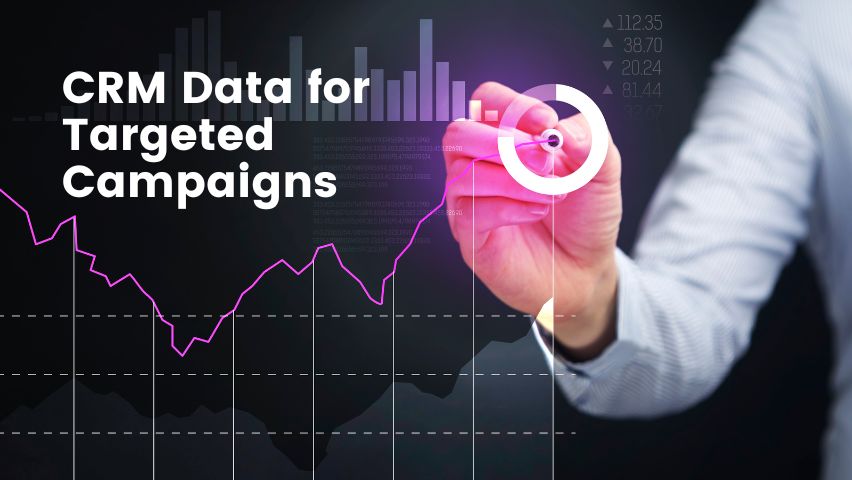In the rapidly evolving world of online gambling advertising, establishing personalized connections with customers is a paramount pursuit. The key to achieving this lies within customer relationship management (CRM) data, a treasure trove that can transform advertising strategies. Integrating CRM data into digital advertising platforms presents an opportunity to create campaigns that are not just relevant but tailored to individual users, resulting in amplified conversions and unwavering customer loyalty.In this article we’ll begin an adventure through the world of CRM information in gaming advertising. We’ll explore its significance and its function in creating personalized ads, and its benefits when it is used to segment customers and keep them.
Harnessing CRM Data in Online Betting Ads
Picture CRM data as a compass guiding you through the intricacies of customer behavior, preferences, and interactions within the gambling domain. The infusion of this data into advertising endeavors enables marketers to hone in on the precise audience and deliver messages that genuinely resonate. The seamless integration of CRM data with advertising platforms equips marketers with a wealth of insights, paving the way for optimized ad delivery and tangible outcomes.
CRM data has the potential to elevate revenue by up to 41% per salesperson. This statistic illuminates the role of CRM data in driving growth across diverse industries.
Crafting Personalized Ad Experiences with CRM Data
In the age of personalization, crafting ad experiences that mirror the individuality of each user is pivotal. By weaving in customer history and preferences, marketers can fabricate ad encounters that feel as if they were exclusively tailored. Personalized offers and promotions, rooted in CRM data, act as magnets for conversions, as they resonate deeply with the unique desires of each patron.
An astounding 80% of customers prefer to make purchases through brands who weave individual experiences. This highlights the importance of personalization to increase the engagement of customers and building loyalty.
Segmenting Customers for Pinpoint Campaigns
Imagine the power of creating distinct categories of customers based on their betting behaviors and preferences. This is the magic of customer segmentation. It paves the way for meticulously tailored campaigns that address the distinct needs of each group. The foundation for such effective segmentation rests on CRM data, providing marketers with the tools to precision-target specific segments.
Segmented email campaigns are renowned for ushering in a remarkable 760% surge in revenue. This validates the prowess of campaigns tailored to specific customer segments.
Fueling Customer Retention and Loyalty
In the realm of customer retention and loyalty, CRM data takes the spotlight. By dissecting customer interactions and preferences stored within CRM data, marketers can unearth opportunities to rekindle relationships with past patrons. Bestowing targeted rewards and promotions, guided by CRM insights, can sow seeds of loyalty and appreciation, encouraging return visits and wagers.
Elevating customer retention rates by a mere 5% can ignite profit surges ranging from 25% to a staggering 95%. This speaks volumes about the influence of customer loyalty on overall profitability.
Leveraging CRM data is a game-changer for targeted campaigns and conversions, and it’s closely intertwined with online behavioral advertising strategies. Learn how these two elements work in tandem by exploring our detailed guide on Online Behavioral Advertising.
Measuring the Ripple Effect of CRM Data
For measuring the efficacy of CRM-driven campaigns, meticulous tracking and analysis of key metrics are pivotal. Scrutinizing the performance of such campaigns unveils insights into customer engagement, conversion rates, and return on investment. Moreover, gauging customer lifetime value and retention rates offers a panoramic view of the long-term impact stemming from CRM efforts.
Well-structured CRM programs have the potential to bolster customer retention rates by a significant 27%. This highlights the affirmative connection between CRM endeavors and customer fidelity.
Upholding Data Privacy and Compliance
While CRM data is a game-changer for targeted advertising, ethics must always lead the way. Data privacy and compliance are non-negotiable. Shielding customer data and securing user consent for data usage are paramount in nurturing trust and maintaining conformity with data protection regulations.
A compelling 73% of consumers are willing to share more data provided brands practice transparency about its usage. Transparency and consent form the bedrock for fostering trust and encouraging data sharing.
You Can Also Read: Expanding Reach Through Lookalike Audiences and Similar User Segments
In Conclusion
Integrating CRM data into gambling advertising strategies illuminates the path towards creating ad campaigns that are not just focused but deeply personalized for individual users. Harnessing CRM data for ad personalization, customer segmentation, and retention endeavors is akin to wielding a magic wand that conjures conversions and solidifies loyalty. Yet, it is imperative to uphold data privacy and procure user consent to ensure trust and adherence to regulations. By embracing the potential of CRM data, gambling marketers can nurture engaging and rewarding customer experiences, setting the stage for amplified triumph in the fiercely competitive landscape of online betting.



